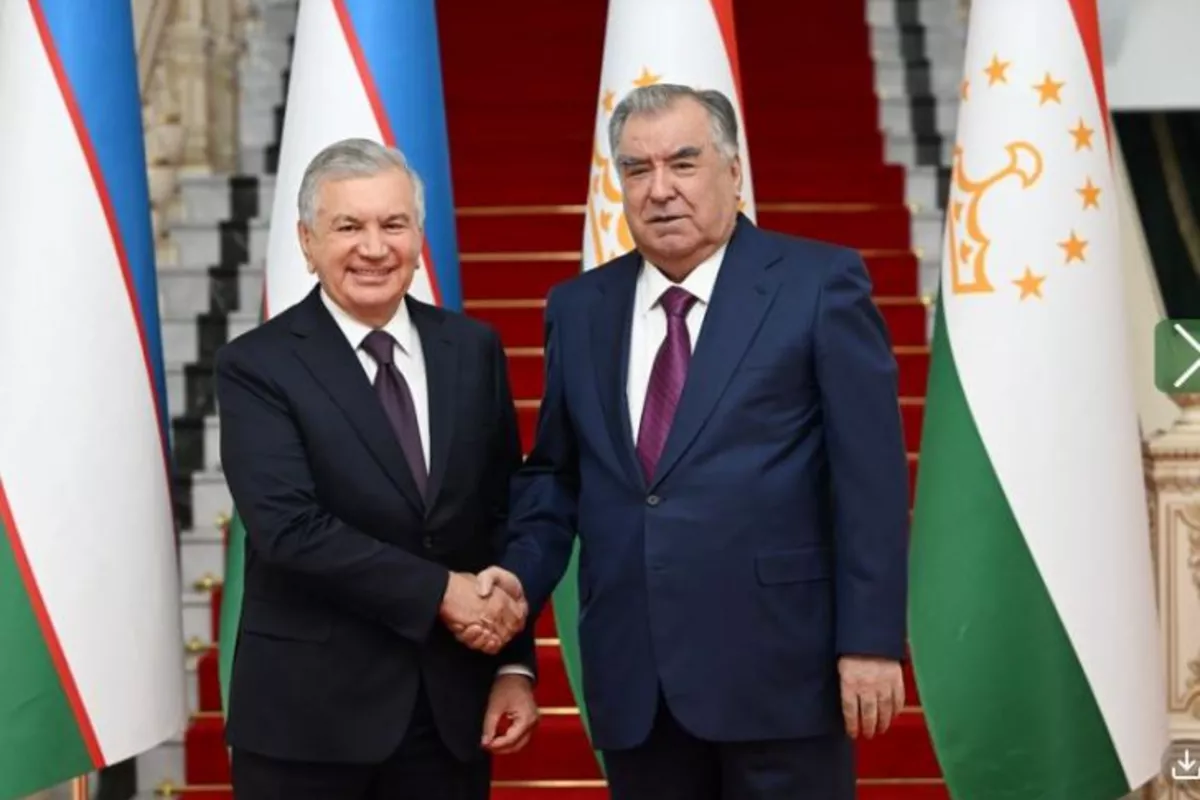
photo: Asia Plus
President of Tajikistan Emomali Rahmon has met with President of Uzbekistan Shavkat Mirziyoyev in Dushanbe during the Central Asia-Russia Summit and CIS Heads of State Council, where they reaffirmed their commitment to strengthening strategic cooperation in trade, energy, innovation, and cultural exchange.
Opening the talks, President Rahmon emphasized the importance of maintaining regular dialogue at the highest level, which he said allows both sides to align their positions on key regional and global issues and address emerging challenges in bilateral cooperation, The Caspian Post reports via Tajik media.
The two leaders welcomed the positive momentum in Tajikistan-Uzbekistan relations, underscoring the steady growth of mutual trust and cooperation. They reaffirmed their shared determination to further strengthen their political, economic, and humanitarian ties.
Economic and trade relations remained at the forefront of the discussions. Both presidents praised the work of the Intergovernmental Commission on Trade and Economic Cooperation, particularly its most recent session in Khiva, and expressed mutual interest in expanding cross-border trade and investment.
They also agreed to bolster cooperation in energy and industry, with a particular focus on introducing innovative and green technologies to promote sustainable development.
Highlighting growing ties between regions and provinces of both countries, Rahmon and Mirziyoyev noted the importance of continued interregional cooperation as a foundation for stronger people-to-people connections and deeper integration.
The leaders also discussed enhancing cultural and scientific exchange, with both sides voicing support for joint initiatives in education, research, and cultural preservation.
In conclusion, Rahmon and Mirziyoyev praised the effective collaboration between Tajikistan and Uzbekistan within international and regional organizations, including the United Nations and the Commonwealth of Independent States (CIS). They expressed confidence that bilateral efforts would continue to serve the long-term interests of both nations and contribute to stability and prosperity in Central Asia.
Share on social media